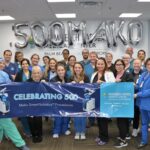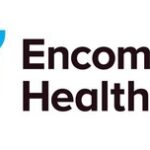 Having worked in the field of information and communication technology (ICT) for approximately 20 years, I have always had a passion for the power of information and how prevailing ideas are communicated to advance local and global initiatives. My charter, as a Solution Architect, focus on developing ICT solutions to advance the business drivers of clients, within the healthcare sector. These include healthcare payers, providers, as well as pharmaceutical researchers and manufacturers.
Having worked in the field of information and communication technology (ICT) for approximately 20 years, I have always had a passion for the power of information and how prevailing ideas are communicated to advance local and global initiatives. My charter, as a Solution Architect, focus on developing ICT solutions to advance the business drivers of clients, within the healthcare sector. These include healthcare payers, providers, as well as pharmaceutical researchers and manufacturers.
The delivery of healthcare is struggling to adapt to the variables of increased velocity, vector and volume of data. Synthesizing existing ideas, while integrating streaming data to form meaningful conclusions, will continue to challenge most healthcare organizations. As a solution architect, I develop communication systems which acquire data from thousands of endpoints, transport terabytes of data, ensure high availability of critical computing systems and deploy agile collaboration tools while maximizing confidentiality and integrity of sensitive and protected information.
As my career and knowledge progressed into 2007, I grew increasingly interested in the shifting paradigms towards wellness and care and the potential impact of ICT. At that point, my knowledge and experience focused on ICT within financial organizations. My exposure to healthcare’s’ utilization of information technology and potential future impact was limited, and based on a few random news articles. One memorable article was that of a British surgeon, Dr David Nott who performed an amputation from a remote area within the Democratic Republic of the Congo, based on text messaging instructions from a colleague in the UK. Other memorable articles at that time described emerging sensors, high-definition imaging and sonography tools with the additional benefits of reduced size for mobile use. During this time it was exciting to see the substantial increase in use of social networks on the world-wide-web and utilization of the Internet to research care needs. As I attempted to understand the forces which could increase efficacy, widening access to care and optimize financial burdens, it was apparent I lacked structure and a formal methodology to synthesize how the benefits of wellness and care are achieve, as well as how to minimize adverse outcomes by integrating the capacity of emerging cross-disciplinary capabilities facilitated by ICT.
Striving to find structure and meaning in the world of information technology and healthcare buzzwords, I entered Nova Southeastern University’s (NSU) Biomedical Informatics Program in 2009. NSU’s Biomedical Informatics Program, led by an educator (Dr. Jennie Lou) and taught by a combination of clinical and non-clinical members, within the College of Osteopathic Medicine, exceeded my expectations. The combination of courses methodically fused the topics of e-patient/social (Dr Kevin Clauson), patient centered care, information security, project management for healthcare (Dr. Steve Bronsburg), value stream analysis for healthcare and geographic information systems in healthcare – in a manner which would be challenging outside of the School of Medicine.
Looking forward, I believe that NSU’s Biomedical Informatics Program was a platform to advance my knowledge and capabilities within the healthcare information technology theater, guided by evidence based analysis and a passion and excitement for healthcare transformation. The passion and relevance were achieved utilizing the Program’s coursework, academic advisement, peer networking, and conferences such as MedicineX, AMIA (2014) and HiMSS. I am looking forward to making a contribution to the advancement of health information technology.

























